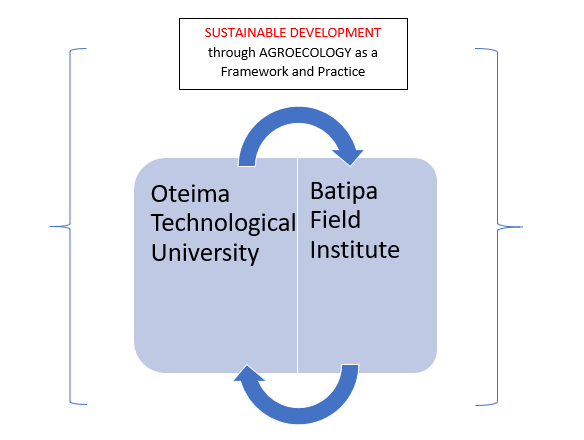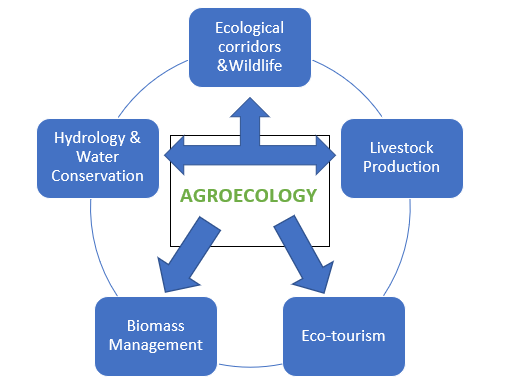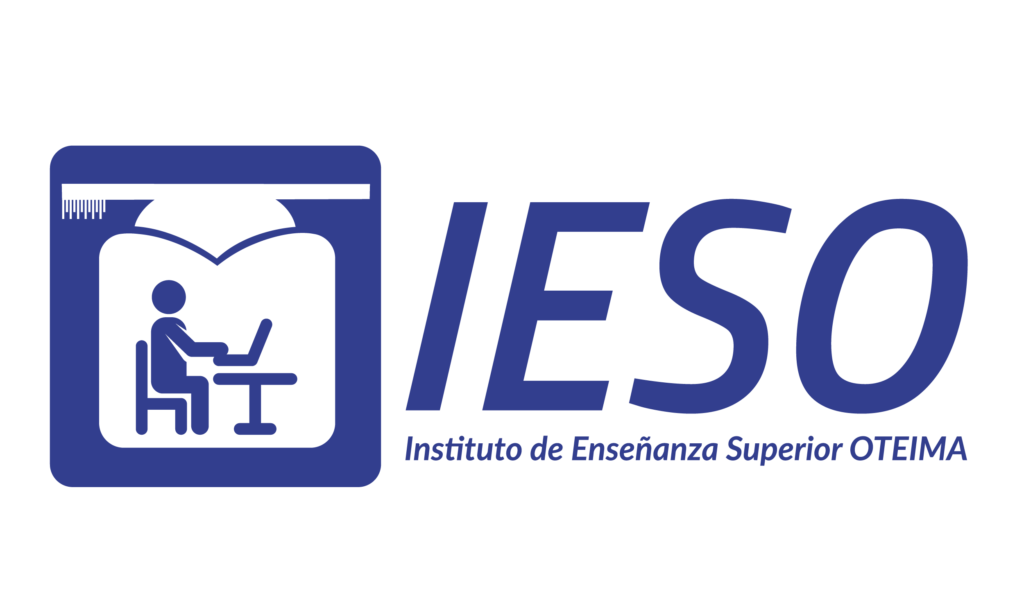Mission and Vision
Mission
Offer opportunities focused on projects for education, research and intercultural interchange that support a real positive environmental and social responsibility.
Vision
Link science and education for the conservation and sustainable management of natural resources, the promotion of academic tourism, research, training and entrepreneurship in the Panamanian western region.
Figure 1. Vision model to achieve a sustainable development at Batipa Field Institute (BFI).Holistic Vision
Batipa Field Institute (BFI) is an ideal Center for experiential learning in a variety of academic disciplines and an excellent location for research in conservation biology, agroecology, sustainability and environmental science, in the tropics. OTEIMA Technological University, together with Batipa Field Institute (BFI) aim at becoming Panama’s premier research and education center for biodiversity conservation, agroecology, eco-tourism and a demonstration site for sustainable development. This holistic goal is supported by a vision that gives emphasis to six main study areas (Fig. 1). Agroecology is the keystone, overarching area, which serves the vision model here presented as an interconnecting vehicle across the other five areas.
Figure 1. Conceptual vision model of the areas of emphasis at Batipa Field Institute (BFI).
Description of Main Study Areas and related Projects at BFI
The six areas of study support several, in-progress projects at BFI where students can get involved (under the guidance of credentialed professors), if they need to earn academic credit, in fulfillment of their degree requirements. The following courses (e.g.: Independent Study, Internship, Capstone Project) are available for these purposes, and/or to conduct research in pursuit of a graduate thesis. Here below is a description of the main study areas at BFI.
- Design of ecological corridors and bridges for wildlife
Increasing connectivity among cultivated areas and existing wildlife patches is a priority objective at BFI, in order to facilitate faunal mobility across the landscape in Batipa. This goal is being pursued through reforestation of native, edible trees and other plants, while designing and establishing corridors.
- Hydrology and Water conservation systems
Water is an essential resource to maintain the biological productivity of both natural as well as agroecosystems. To this end the study of the interactions among water sources, land and plants community becomes vital to insure adequate water supply throughout the year at BFI. Various approaches to water collection, storage and distribution are a continuous effort to insure a sustainable management of this resource at Batipa. This study area includes also the ecological management/recycling of grey waters and sewage.
- Biomass management (mulch, composting, biochar making, biofertilizers)
A sustainable management of the waste biomass produced by the teak fields, and other cultivated crops has potential to be converted in value added products such as mulching material for the landscaping industry. More value-added products from BFI include: compost, biochar and biofertilizers (e.g.: bokashi and compost teas) through the use of livestock manures available on-site. These value-added products are used at BFI as well to manage ecologically, the fertility of its soil.
- Bovine Reproductive Physiology and Management
Batipa Field Institute (BFI) raises and maintains a large herd of Senepol cows. Its stockyard and adjacent laboratory are a distinctive infrastructure for enhancing bovine reproduction through: Gametes evaluation, artificial insemination, embryo transfer and other related technologies.
- Eco-tourism (trail management, natural history, recreation)
A system of 25 Km. of trails spreads through the 2,000 Ha. of BFI and its natural areas, which are “home” to a variety of plants and animal taxa that are endemic to western Panamá. The conservation of these unique species is essential to remain attractive to groups of eco-tourists and the eco-tourism industry, which is growing quickly in this region of the country, demonstrates tangibly the need to develop this market niche. Therefore, BFI is prepared to engage students and scholars in the many aspects of eco-tourisms, from natural history interpretation, to hospitality management and related fields to prepare the next generation of professionals in the eco-tourism industry.
- Agroecology (multiple topics at production garden and any other area at BFI)
Agroecology is a scientific approach to agriculture that builds on the resource-conserving aspects of traditional, local, and small-scale agriculture while drawing on modern ecological knowledge and methods. Main emphasis is given to the study of soil (fertility, erosion control and prevention, soil-borne diseases, pest suppressiveness) and water, in order to maintain diverse and productive plant and animal communities. Livestock production is very important to produce protein-rich foods, and recycling animals’ waste (manure) supports more ecologically the fertility of soils. Thus, agroecology is the keystone area of emphasis at BFI, which connects with all the other five areas (Fig. 1). It is an overarching, interdisciplinary area of emphasis that through an adaptive management allows BFI to become also leader in sustainable development in Panamá, and beyond.




